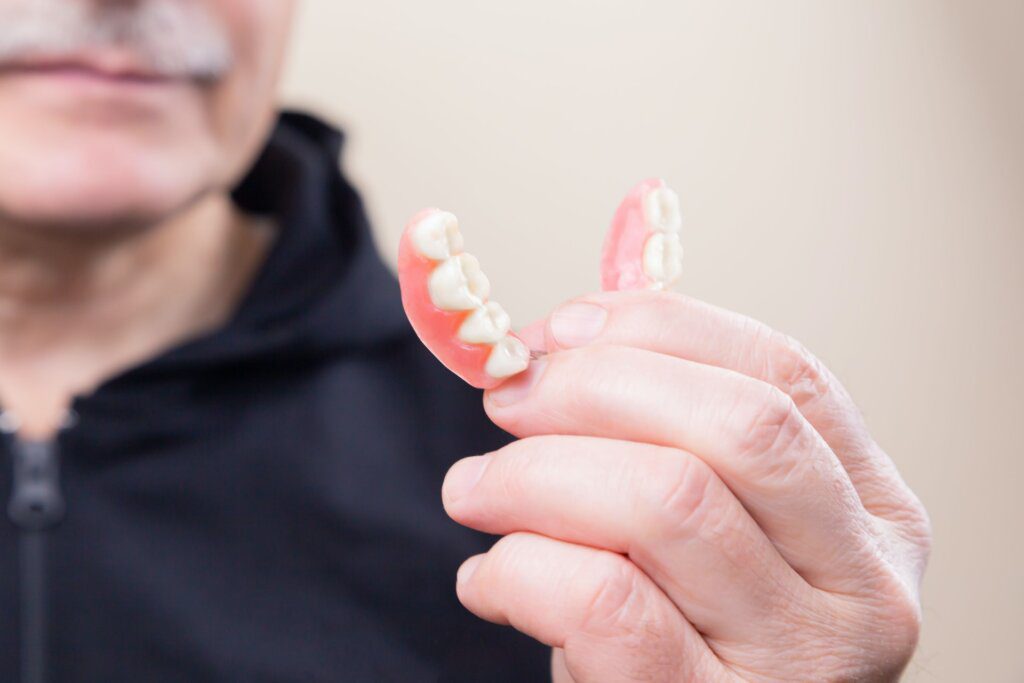3 Tips: Healthy Dental Care for Dementia Patients
Caregivers have many responsibilities when tending to loved ones with Alzheimer’s or other dementias. As such, it’s not uncommon for them to overlook basic preventative care needs like oral hygiene. It is important to seek healthy dental care for dementia patients.
Yet, dental care for dementia patients and those with Alzheimer’s is critical, especially throughout the early stages of cognitive decline. Understandably, treating and maintaining healthy teeth and gums presents several challenges for caregivers and patients alike.
Make it a Regular Activity
Any caregiver or doctor will tell you that a visit to the dentist for emergency care can be stressful or frightening for people living with dementia and Alzheimer’s. Depending on which stage of the disease they’re in, it may be difficult for them to understand what is happening.
By prioritizing oral hygiene with daily brushing, flossing and regularly scheduled cleanings, caregivers are less likely to worry about their loved ones having to undergo dental surgeries or invasive treatments. More importantly, when a dentist visit is needed, it won’t be a foreign experience and you’ll keep them in their comfort zone.
People living with Alzheimer’s and dementia often require ongoing support in keeping up with their basic dental needs, particularly as their condition advances. The more time caregivers can give to preventative oral health, the less emotional and physical discomfort an Alzheimer’s or dementia patient feels.
3 Ways Caregivers Can Support Dental Care for Dementia Patients
Dental hygiene is critical for everyone, regardless of age, gender or condition. For people with Alzheimer’s and dementia, continual care of teeth and gums can significantly improve their quality of life.
Of course, caregivers play an essential role in helping their loved ones meet their basic dental needs for optimal health and well-being. Here are three tips for caregivers to provide dental treatment for dementia or Alzheimer’s patients.
1 Schedule Additional Cleanings
Most insurance plans cover two preventative cleanings at the dentist’s office annually — usually six months apart. However, when it comes to dental care for people with Alzheimer’s and dementia, caregivers may want to consider bringing them in more often.
Sometimes caregivers struggle to get their loved ones to comply with brushing and flossing their teeth twice daily for two minutes, as dental health care professionals recommend. To prevent tartar buildup and cavities, paying out of pocket for additional cleanings may be a worthwhile approach to assisting Alzheimer’s and dementia patients with good oral hygiene.
Tooth decay or loss would be a worst-case scenario with the development of gum diseases, such as periodontitis and gingivitis. Approximately 19% of people over 65 are missing all of their natural teeth, which could result in needing surgery or your loved one having trouble eating.
Suppose Alzheimer’s or dementia patients have existing dental conditions. In that case, frequent trips to the dentist can also aid with ongoing treatment to ensure their dental condition doesn’t worsen or pose a greater health risk to the individual.
Schedule cleanings for your loved ones as long as they can go to the dentist. However, remember that brain and behavioral changes may render it impossible to keep up with future dental appointments if the experience grows increasingly traumatic.

2 Assist With Healthy Dental Habits
There may come a time when a person with Alzheimer’s and dementia may not remember what specific objects are or their purpose.
As their caregiver, you have the difficult task of continuously finding new ways to communicate with your loved one and demonstrate simple routines they’d done their whole lives.
Since people with dementia lose their word-processing abilities with the progression of cognitive degeneration, visual communication often allows them to process information more effectively. For example, point to their toothbrush when speaking so they can actually see the object you’re referring to. Doing this can help increase your mutual understanding of how to use a toothbrush and what they should use it for.
Another practical approach might be to brush your teeth alongside your loved one, providing simple, straightforward instructions on how to do it. If brushing their teeth after each meal is too much for them, you might want to demonstrate how to rinse with water to remove as much residual food as possible.

Various oral products for dementia patients are available to purchase to help make brushing and flossing easier. Soft-bristled or children’s toothbrushes will be much gentler for sensitive mouths and brittle teeth. Alternatively, a Proxabrush can reach the food that gets stuck between their teeth if flossing isn’t possible.
Disposable oral care swabs are also soft and effective for cleaning teeth, gums and the tongue. Additionally, your loved one may use mouthwash as long as you can trust them not to swallow it.
3 Seek Support
Caregivers have busy schedules and much to consider when treating people with Alzheimer’s and other dementias. Watching loved ones decline can be equally frustrating and heartbreaking, so it’s crucial to seek resources and support to help them maintain their dental hygiene.
Selecting a dentist who specializes in treating patients with Alzheimer’s and dementia can make a significant difference, relieving you of dealing with the onset of erratic behaviors associated with cleanings or treatments. During appointments, an experienced dentist can then provide suggestions on how to improve your loved one’s oral hygiene at home, making brushing and flossing much easier on you and the person living with dementia.
You can find the right dentist for your loved one’s care team by searching your local dentist society’s directory. You might also choose to call providers in your area and ask them directly about their preventative care experience for patients with these conditions.
Research online for additional dental care tips or oral products for dementia patients. Various organizations for Alzheimer’s or dementia patients are an excellent resource for caregivers to learn and garner support for assisting their loved ones through cognitive challenges.
Of course, caregivers should also tend to their personal emotional needs when managing their loved one’s dental care. Reach out to other caregivers, providers and experts to discuss your challenges in providing the best dental care at home. Someone can likely offer practical insight to ease some of the struggles.
The Best Plan of Dental Care for Dementia
Dental care varies from person to person and people living with Alzheimer’s and dementia may require different routines, treatments and products at various disease progressions. Although every strategy may not work for each individual, creating and adapting a dental care routine most suitable for your loved one will always be the best plan a thoughtful caregiver can deliver.
Smile!
About the Author

Beth Rush
Beth Rush is the Managing Editor and Content Manager at Body+Mind.
Body+Mind features articles about diet, fitness, mental health, parenting and health care.
[modular_content id=”9754″]